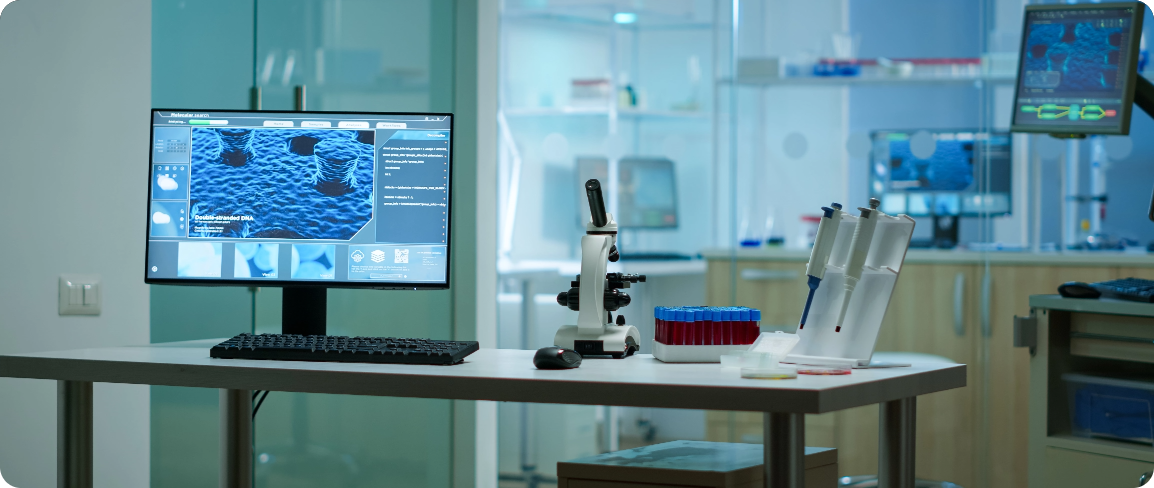
The department possesses sufficient computer laboratories systems which are used throughout the year to cater to undergraduate students of the Computer Science & Engineering (CSE). The laboratories are equipped with sufficient hardware and licensed software to run Program specific curriculum and off-program curriculum. Each lab operates on a specific schedule which is dictated by the corresponding time table of the specific semester/branch. On a general note, each laboratory course consists of two sessions (each duration three periods) every week. Each laboratory can accommodate a batch of 24/30 students. Laboratory sessions are conducted to ensure the attainment of laboratory outcomes which in turn contribute to the program outcomes.
In total we are having Fifteen computer labs, each having minimum strength of 24 & maximum strength of 30. One lab is in A Block & Fourteen labs in E & D Block, with a total System Strength of more than 300 Systems. Usage of Open source software is promoted. All products of, Microsoft Academic Alliance (MSDNAA) program and consists of a bundle of Microsoft Software for academic purposes. Development environments like MS Visual Studio, MS Visual Studio .NET, Visual Prolog, MS Office developer, etc., are actively used for development purposes by the department. IBM Rational Rose software development suite is used to familiarize the students with various software developmental models. RDBMS with Oracle Academic Initiative (OAI Membership license) are available along with Network Simulator (NS2, NS3), Python, PHP, Latex, Java compiler and applet viewer, C/C++ compilers and Lisp interpreters. The student-computer ratio is 1:1. Each laboratory maintains a Stock register detailing the equipment history within it. One Teaching faculty and a Lab instructor is in-charge of the overall functioning/maintenance of each lab.

We use Matlab software along with Scilab software which is an alternative for Matlab. MATLAB (matrix laboratory) is a multi-paradigm numerical computing environment and fourth-generation programming language. A proprietary programming language developed by MathWorks, MATLAB allows matrix manipulations, plotting of functions and data, implementation of algorithms, creation of user interfaces, and interfacing with programs written in other languages, including C, C++, Java, Fortran and Python. In 2004, MATLAB had around one million users across industry and academia. MATLAB users come from various backgrounds of engineering, science, and economics.

We use Turbo C++ software in this lab. Turbo C++ was a C++ compiler and integrated development environment and computer language originally from Borland. Most recently it was distributed by Embarcadero Technologies, which acquired all of Borland’s compiler tools with the purchase of its CodeGear division in 2008. The original Turbo C++ product line was put on hold after 1994 and was revived in 2006 as an introductory-level IDE, essentially a stripped-down version of their flagship C++Builder. Turbo C++ 2006 was released on September 5, 2006 and was available in ‘Explorer’ and ‘Professional’ editions. The Explorer edition was free to download and distribute while the Professional edition was a commercial product. In October 2009 Embarcadero Technologies discontinued support of its 2006 C++ editions. As such, the Explorer edition is no longer available for download and the Professional edition is no longer available for purchase from Embarcadero Technologies. Turbo C++ is succeeded by C++Builder.

We use Android Studio in this lab. Android Studio is an integrated development environment (IDE). It is used to develop mobile applications based on android.

Linux Mint is a free and open-source Linux distribution based on Debian. Linux Mint is officially released in three editions: Cinnamon, Mate and Xfce.

We use Packet Tracer software in this lab. Packet Tracer is a cross-platform visual simulation tool designed by Cisco Systems that allows users to create network topologies and imitate modern computer networks. The software allows users to simulate the configuration of Cisco routers and switches using a simulated command line interface. Packet Tracer makes use of a drag and drop user interface, allowing users to add and remove simulated network devices as they see fit. The software is mainly focused towards Certified Cisco Network Associate Academy students as an educational tool for helping them learn fundamental CCNA concepts.

We use MySql in this lab. MySql is an open source relational database management system. Oracle Database may be licensed and deployed on-premises on a choice of platforms including Oracle Engineered Systems, and on-Cloud with a choice of services running on general purpose hardware or Exadata. The various editions and Cloud services provide different levels of database functionality for different use cases. Oracle Corporation provides a range of database cloud services on its Oracle Cloud platform that are designed for different database use cases; from test/dev deployments to small and medium sized workloads to large mission-critical workloads. Oracle Database Cloud Services are available on a choice of general purpose hardware and Exadata engineered systems.

We use Eclipse software in this lab. In computer programming, Eclipse is an integrated development environment (IDE). It contains a base workspace and an extensible plug-in system for customizing the environment. Eclipse is written mostly in Java and its primary use is for developing Java applications, but it may also be used to develop applications in other programming languages through the use of plugins, including: Ada, ABAP, C, C++, COBOL, Fortran, Haskell, JavaScript, Julia, Lasso, Lua, NATURAL, Perl, PHP, Prolog, Python, R, Ruby (including Ruby on Rails framework), Scala, Clojure, Groovy, Scheme, and Erlang. It can also be used to develop packages for the software Mathematical. Development environments include the Eclipse Java development tools (JDT) for Java and Scala, Eclipse CDT for C/C++ and Eclipse PDT for PHP, among others.

These labs are used to design for Project development. These labs include the software like Eclipse, Matlab, Python, PHP, MySql Server data base.

We use Turbo C++ software in this lab. Data Structures laboratory is spatial and well equipped. It provides a wide approach in C programming and enables to apply knowledge in Artificial Intelligence.

We use StarUML software in this lab. A sophisticated software modeler for agile and concise modeling. The Lab is aimed to provide hands-on experience with different aspects of Software Engineering and UML including requirements identification, DFD, behavioral and structural design using UML diagrams, implementation, testing, and so on.

Artificial Intelligence and Machine Learning (AIML Lab) was established in the year 2020, in Dept. of Computer Science & Engineering, Panipat Institute of Engineering & Technology. It is focused on Artificial Intelligence and Machine Learning case studies, exploratory data analysis, supervised learning and unsupervised learning using Python to evaluate and predict different dataset models. The aim of the lab is to provide the information about Python programming and explains syntax and libraries used as per the course curriculum and project work. Students and faculty can utilize AIML Lab and can provide solutions to various sectors in healthcare, farming, public and private sector and education, among others.

Data Science lab is established in 2021 in department of Computer Science and Engineering, Panipat Institute of Engineering and Technology. Data Science Lab provides computing platform for novel languages like Python, R, and OpenCV and other necessary for building coherent set of ideas, fundamental of Machine Learning, Artificial Intelligence and Deep Learning models and algorithms.

Augmented Reality and Virtual Reality Studio (AR VR Studio Lab) was Established in the year 2019, in Dept. of Computer Science & Engineering, Panipat Institute of Engineering & Technology. It is focused on Virtual and Augmented Reality Technologies in gaming and education. The aim of the lab is to explore how AR/VR can support experiential learning, research, and other pedagogical and curricular goals. This lab will combine people, technology, resources, and space to see what emerges.

The Cyber Security Laboratory is a state-of-the-art, dedicated space in which students can safely engage in cyber related activities, including malware detection and deactivation, and penetration testing, in a contained and controlled environment without possible impact to other campus networks.